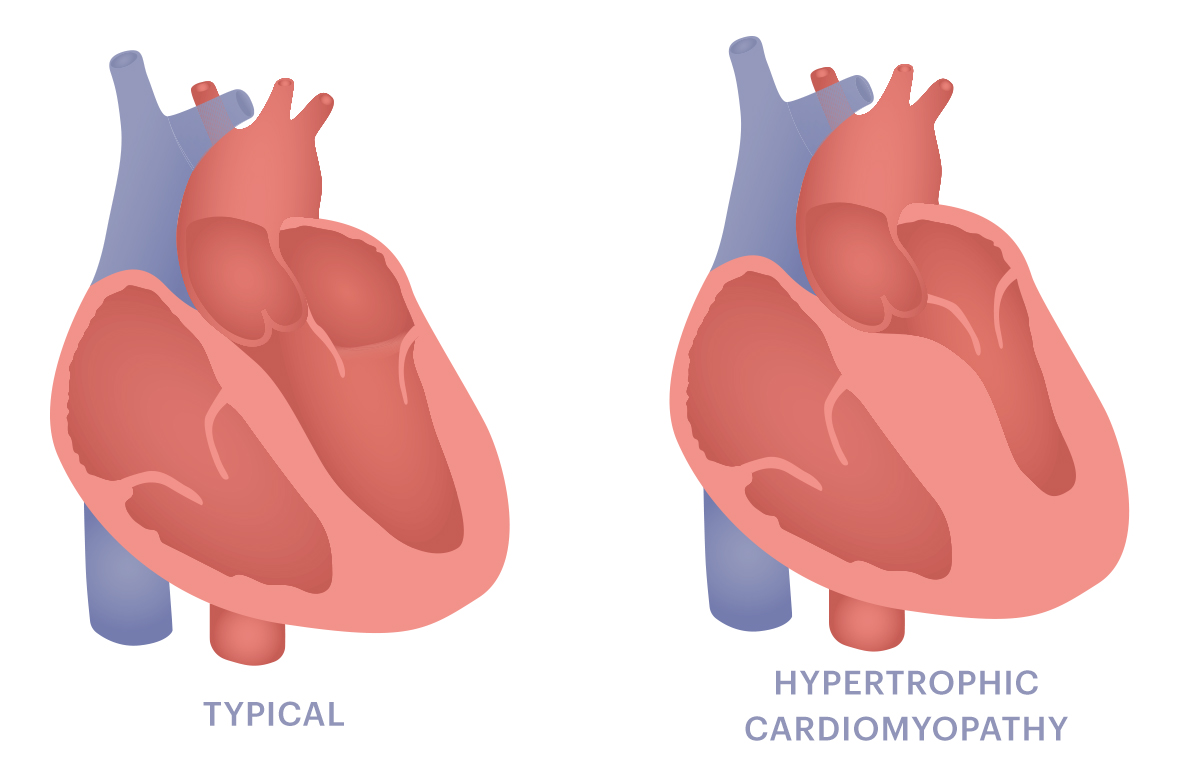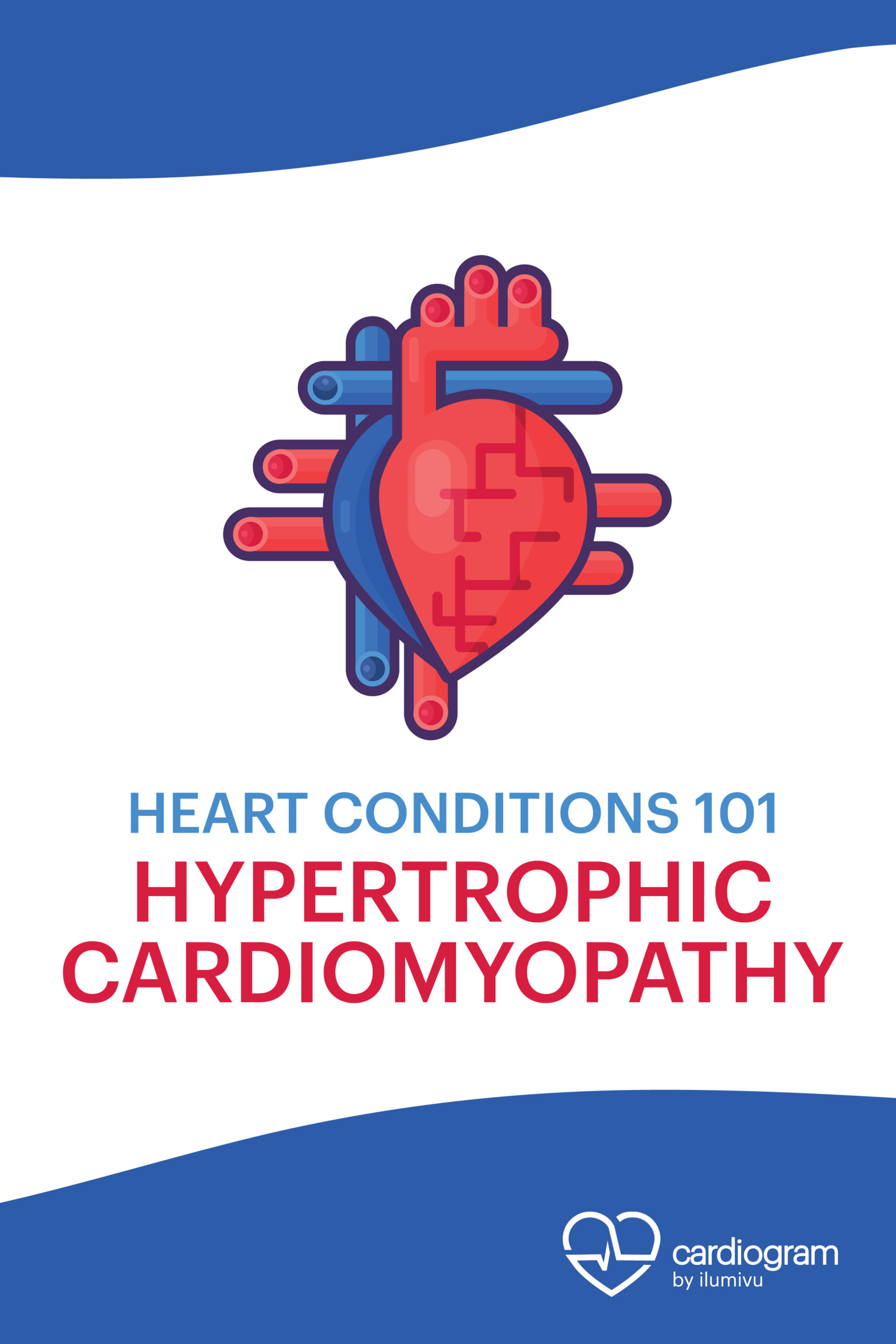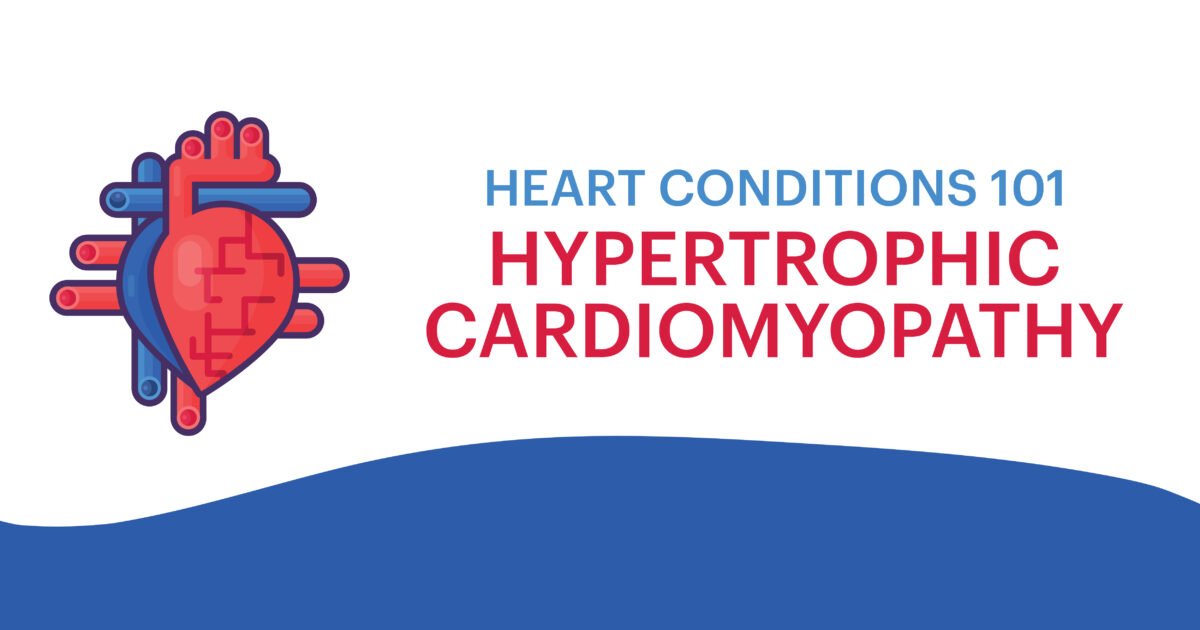Hypertrophic cardiomyopathy (HCM) is a type of cardiomyopathy, and specifically a heart disease that can cause the heart muscle to thicken. This can make it difficult for the heart to pump blood properly. In some cases, hypertrophic cardiomyopathy can lead to heart failure or become fatal. However, there are treatments and preventative measures that can be taken today to help manage symptoms and minimize complications.

Causes of Hypertrophic Cardiomyopathy
Hypertrophic cardiomyopathy is thought to be caused by various factors, including genetics and environmental conditions. In many cases, HCM develops due to a gene mutation that runs in the family. This gene would cause abnormalities in the structure or function of specific proteins involved in heart health, leading to the development of familial hypertrophic cardiomyopathy over time.
Additionally, some studies have found that exposure to particular stresses or toxins may be linked to an increased risk of this condition. Overall, there are likely many contributing factors that can increase someone's risk of developing HCM.

Signs and Symptoms of Hypertrophic Cardiomyopathy
Common signs and symptoms of HCM include shortness of breath, dizziness, fainting spells, chest pain, palpitations, and angina. In addition, some people with HCM may experience anxiety or difficulty sleeping at night due to the condition's effects on their heart rate.
Risk Factors for Hypertrophic Cardiomyopathy
Although the cause of HCM is not well understood, investigating potential risk factors or contributing factors may help us to know how this condition develops. Some possible risk factors associated with HCM include inherited genetic mutations, high blood pressure or cholesterol levels, a history of physical or emotional trauma, or exposure to certain chemicals or toxins.
Ultimately, further research is needed to fully understand the complexity of hypertrophic cardiomyopathy and better support those affected by this condition.

Treatment Options for Hypertrophic Cardiomyopathy
Fortunately, there are several treatment options for HCM, such as drug therapy and surgery. For example, particular drugs may help control symptoms and lower blood pressure in patients with HCM. Additionally, surgical interventions like myectomy or alcohol septal ablation may be recommended for more severe cases, depending on the patient's overall health and other factors.
Overall, individuals with HCM can feel reassured that there are effective ways to manage their condition and reduce their risk of complications.

Hypertrophic Cardiomyopathy Prevention
Where there is currently no known cure for HCM, there are measures that can be taken to help prevent its onset or ongoing progression. These include adopting a healthy lifestyle including:
- Engaging in regular exercise
- Eating a balanced diet
- Managing stress levels
Additionally, seeking medical care at the first signs of symptoms can help to ensure that any complications from HCM are identified and treated as soon as possible which can reduce further issues. With proper prevention strategies in place, those affected by HCM can take steps to reduce their risk of severe health problems and live long healthy lives.
Tagging Symptoms
Tracking Symptoms
Journaling
Enroll in a habit
Join our facebook community
Share data with your doctor
1. Geske, J. B., Ommen, S. R., & Gersh, B. J. (2018). Hypertrophic Cardiomyopathy. JACC: Heart Failure, 6(5), 364–375. https://doi.org/10.1016/j.jchf.2018.02.010
2. Antunes, M. de O., & Scudeler, T. L. (2020). Hypertrophic cardiomyopathy. IJC Heart & Vasculature, 27, 100503. https://doi.org/10.1016/j.ijcha.2020.100503




